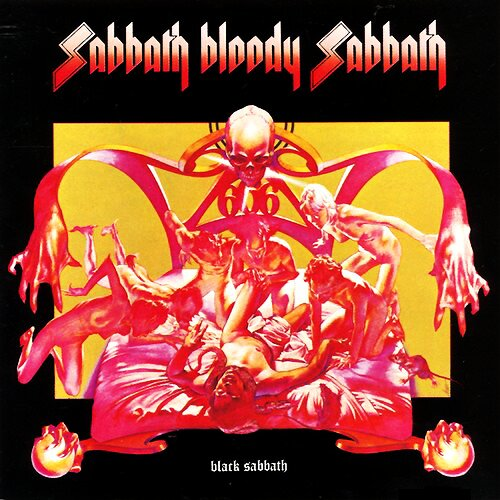Tuesday, December 30, 2014
Sabbath Bloody Sabbath (Black Sabbath, 1973)
This is one of my favorite Sabbath albums and it marks the culmination of the first "re-invention" of the band. As I had mentioned earlier, the history of Black Sabbath in the 1970's can be explained as an constant attempt to get away from a certain undesired reputation. The first three albums share a similar sound, sometimes called "black blues" or (using Ozzy's recent terminology) "Satanic blues". It was their manner of distorting the British blues boom, just another style among heavy (Deep Purple), and progressive (Fleetwood Mac) approaches. Although incredibly influential and frequently credited with launching heavy metal, the band itself was feeling uncomfortable with their situation in the wake of the release of their third album, Master of Reality, in 1971.
Easing off of their manic recording pace, took some time off following 1972's somewhat different Volume 4 and returned with a sound that was still unmistakably Black Sabbath (I mean, look at the cover), but fully employing the new approach that diminished the role of Tony Iommi's solos and used a series of Zeppelin-grade heavy riffs to progress the songs along. The approach is particularly evident on surprisingly thoughtful songs like "A National Acrobat" and "Spiral Architect". The use of keyboards is also stepped up, notably on "Sabbra Cadabra", which features Rick Wakeman on piano (his only credited role, though rumor has it he was all over the album), and "Who Are You", an eerie guitar-less song.
Just as they "grew" into this new sound, they quickly grew out of it on the next album, Sabotage. Another result of taking some time off, it is sort of the last "classic" Ozzy-era album, they showed signs of returning to the solo-dominated sound. On stage, Tony would literally push Ozzy to the side. The following albums had a less doomy sound, which may have been what the band was seeking, but it would ultimately result in an essentially permanent split of the original band and launch the "best singer" debate that rages on to this day.
Subscribe to:
Post Comments (Atom)

No comments:
Post a Comment